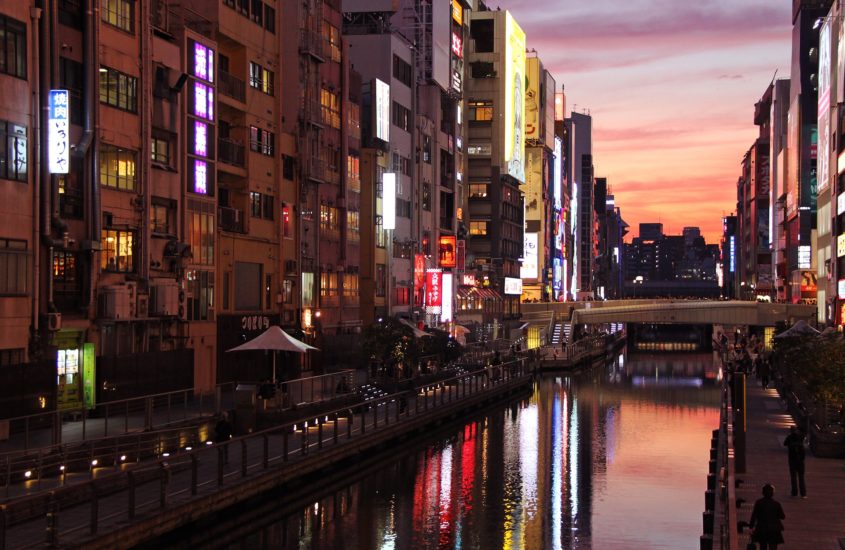10 Things To Know Before Traveling In Japan By: Aya Yagi


I’m back with more tips and tricks! This time, I’m sharing Part I of the things I think should know before traveling to Japan. Japan is a lovely country to visit, but it’s definitely not the United States. There are different customs, different cultural expectations, and marvelous things that you will encounter for the first time. To make your trip easier, make sure to plan out some things and do your homework before taking off on a plane! 🙂
Language and Phrases
Yes, many signs and announcements are written in English. And yes, many people in Japan can speak some English, so if worst comes to worst, you’ll probably find someone to help you. However, as always when traveling, it’s really useful to know a few phrases before you go. Greetings (like hello, good morning) are important in Japan, as are thank you and excuse me. Japan is also a country where bowing (even a little tilt of the head is good) is common; even if you don’t normally bow, you’ll probably find yourself reciprocating their actions once you arrive!
Some of the important phrases to know:
すみません (pronunciation = sooi ma sen, meaning = excuse me)
ありがとうございます (pronunciation = Arigatou go Zai masu, meaning = thank you)
はどごですか?(pronunciation = wa doko deska, meaning = Where is ____ ?)
Transportation
Public transportation is fantastic in Japan, especially if you’re in a larger city. Even in smaller towns, there are usually buses that serve the important routes. The country is full of many elderly people, so they try to make sure that everyone can get around to go grocery shopping, etc. Public transit is convenient, clean and inexpensive. Definitely, make use of it. The transportation maps might be overwhelming at first (especially the ones in Tokyo), but you’ll get used to it!

The shinkansen (bullet trains) and other long-distance trains, however, are much more expensive. If you’re planning on traveling to many cities in Japan during your stay, I highly recommend getting a JR Rail Pass that allows you to use all Shinkansen and JR national railway routes. Although they’re definitely not cheap (Regular passes are currently $256 for a 1-week pass, $408 for a 2-week pass, and $522 for a 3-week pass), they are so worth it. Take just one long round trip (think Tokyo – Osaka), or two long one-ways to different locations, and you’ve already made up for your 1-week pass!
A note on taxis: they’re a little different than in the States. Most have automatic doors for the passenger seats (in the back), and you shouldn’t open the doors yourself (both when you enter and exit the car). If you’re traveling with a lot of stuff and/or people and someone needs to sit in the front, I recommend asking if it’s okay to sit in the front: “Suimasen, mae ni suwatte ii deska?”
Money, Money, Money!
You’re in luck. Money in Japan is very easy to use! The bills are basically $10, $50 or $100 (1,000 yen, 5,000 yen, or 10,000 yen respectively). You can think of 100 yen as $1 and then adjust a little depending on what the conversion rate is at the moment. As long as you’re careful about your zeros, the bills are super easy.
The coins are just a tad more difficult. They have 1 yen (the lightest one), 5 yen (has a hole in the middle, copper color), 10 yen (bronze color), 50 yen (silver color, has a hole in the middle), 100 yen (has the flower design on one side, a big ol’ 100 on the other) and 500 yen (the largest, heaviest coin).
Smoke
One thing you should know (especially if you have asthma or any other respiratory issues) is that Japan still smells like cigarette smoke in a lot of places. Although it’s much better than a decade ago, the standards for public smoking are different. With the Olympics coming up in 2020, it looks like the country’s making an even greater push to restrict the areas in which one can smoke. That being said, many restaurants still have smoking sections, where the smoke inevitably spills over to the whole place, and some smaller neighborhood joints don’t even try to designate smoking and non-smoking. There are also many vending machines selling cigarettes.
I’m someone who really can’t handle smoke (it activates my gag reflex like no one’s business) so it always takes me a few days to adjust to everything.

Food
My only suggestion is that you should eat and then eat some more. Japan is a marvelous country for foodies. There are so many delicious dishes, snacks, and desserts. Don’t even get me started on the different kinds of drinks. There’s always something to eat in this country, whether you want to go out to a restaurant, a night stall or just pick something up at the supermarket. Try ramen, soba, sushi (the real Japanese kind), okonomiyaki, katsu don, yakitori, and so many other things! Try the slightly weird things like natto (fermented soybeans!), which is my favorite but an acquired taste. Go to the bakeries (curry pan and melon pan are some of my faves)! Explore the vending machine!
A whole new world is at your fingertips! Stay tuned for part two where I’ll talk about shopping, funny toilets, Japan’s love of museums and more!



